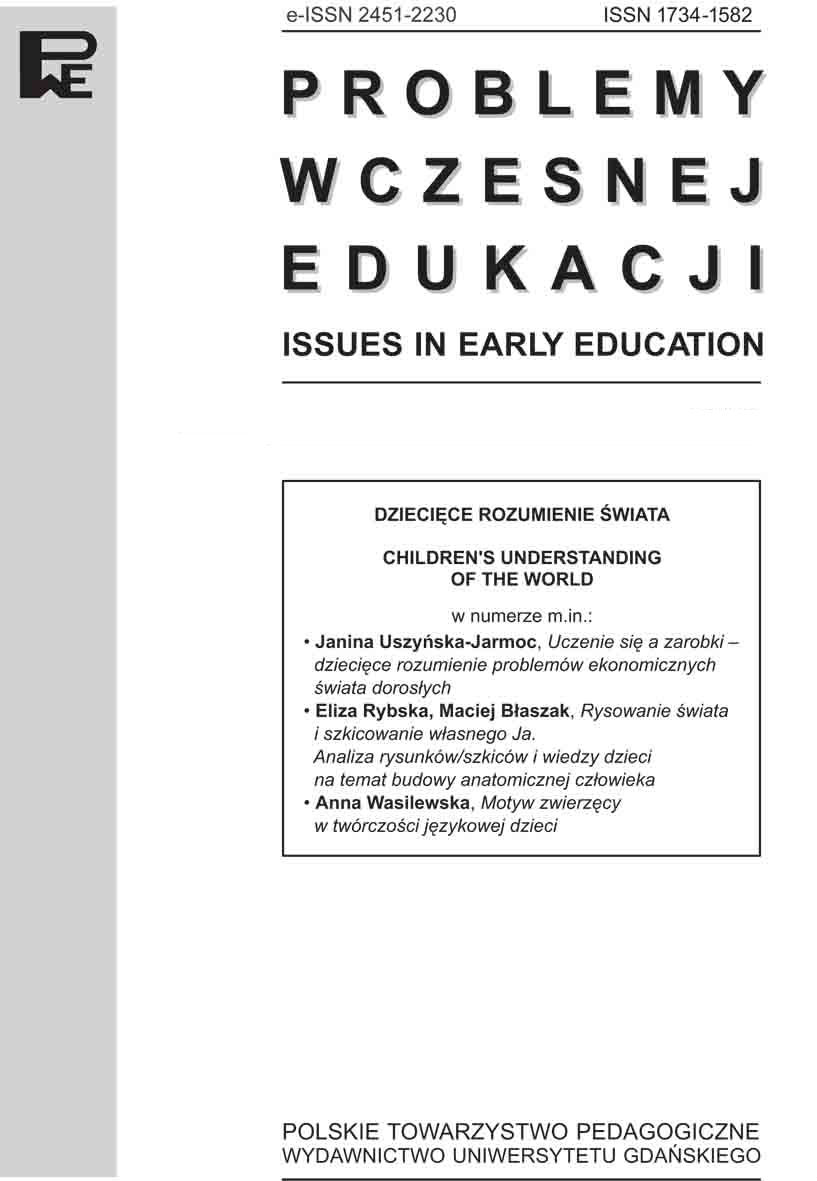Good to love or good to eat? Ethical and ideological implications of hunting, killing and the consumption of anthropomorphic animals in popular picturebooks
Good to love or good to eat? Ethical and ideological implications of hunting, killing and the consumption of anthropomorphic animals in popular picturebooks
Author(s): Kelly HübbenSubject(s): Language and Literature Studies, Visual Arts, Preschool education, Educational Psychology, Neuropsychology, Sociology of Art
Published by: Polskie Towarzystwo Pedagogiczne
Keywords: anthropomorphism; anthropocentrism; commercial picture books; Little Golden Books; Literary Animal Studies; species difference;
Summary/Abstract: This paper discusses the visual and narrative construction of species difference in a selection of Little Golden Books, as well as its ethical and ideological implications. I will focus on how certain picture books encourage thinking about species in terms of difference and hierarchy, while simultaneously blurring species boundaries through visual and/or verbal anthropomorphism. From an early age, children are taught that animals come in different categories, some of which are good to love, and should be treated with due respect (pets) and others that are good to eat, and, at least in Western cultures, less deserving of our compassion. Focusing on a selection of Little Golden Books, American merchandise books aimed at young readers, I investigate how children learn to distinguish between these two classes of animals.
Journal: Problemy Wczesnej Edukacji
- Issue Year: XII/2016
- Issue No: 3 (34)
- Page Range: 48-57
- Page Count: 10
- Language: English

